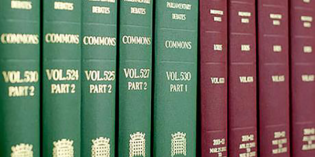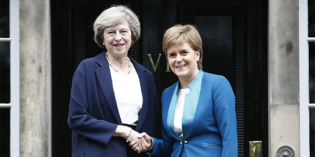Uncategorized

Is the resurgence of Europe’s far-right a cultural or an economic phenomenon?
There has been a spectacular rise in support for far-right parties in Europe over the last two decades, but what has driven this electoral success? Drawing on new research, Vasiliki Georgiadou, Lamprini Rori and Costas Roumanias demonstrate that different types of far-right party have benefitted from different factors: economic insecurity has helped increase support for ‘extremist right’ parties, while cultural factors have been associated with the growth of the ‘populist radical right’.

Selfies, policies or votes? How politicians can campaign effectively on Instagram
Twitter and Facebook have become crucial arenas for political competition, but what about Instagram? In new research, Stuart Turnbull-Dugarte assesses how parties in Spain have used the image-based social media platform and finds that political newcomers like Podemos and Ciudadanos are most effective at engaging voters, particularly when they focus on political leaders and mobilising supporters, but that policy communication is less effective.

Democratising Hansard: continuing to improve the accessibility of parliamentary records
The official, substantially verbatim report of what is said in both houses of Parliament is an essential tool for ensuring democratic accountability. This record, Hansard, contains a wealth of data, but it is not always fully accessible and easy to search. Lesley Jeffries and Fransina de Jager explain how a new project, Hansard at Huddersfield, aims to improve access to the Hansard records and contribute new ways of searching the data.

Review of the year: Democracy in 2018
We have reached the end of the year without a UK general election or referendum, but 2018 has been one of the most eventful, crisis-riven years in UK democracy (since the last one). Meanwhile, globally democracy seems under threat even in established liberal democracies. Below is a selection of our articles from throughout the year that have sought to make sense of what’s happening in the UK and across the globe.

Local policy responses to anti-Islamic protest in the UK need to consider both exclusionary and inclusionary approaches
Disruptive and antagonistic anti-Islamic protests in some towns and cities in the UK have posed a challenge to local authorities in how to respond to them. William Allchorn examines the variety of policy responses that have been attempted and suggests that inclusionary tactics that address narratives of polarisation need to be part of the democratic response.

The UK’s democracy is in danger of backsliding – but current policy proposals are not the right fix
Jessica Garland from the Electoral Reform Society responds to our recent publication, The UK’s Changing Democracy, and highlights crucial areas for immediate reform, particularly in the areas of political finance and online advertising.






 Democratic Audit's core funding is provided by the Joseph Rowntree Charitable Trust. Additional funding is provided by the London School of Economics.
Democratic Audit's core funding is provided by the Joseph Rowntree Charitable Trust. Additional funding is provided by the London School of Economics.